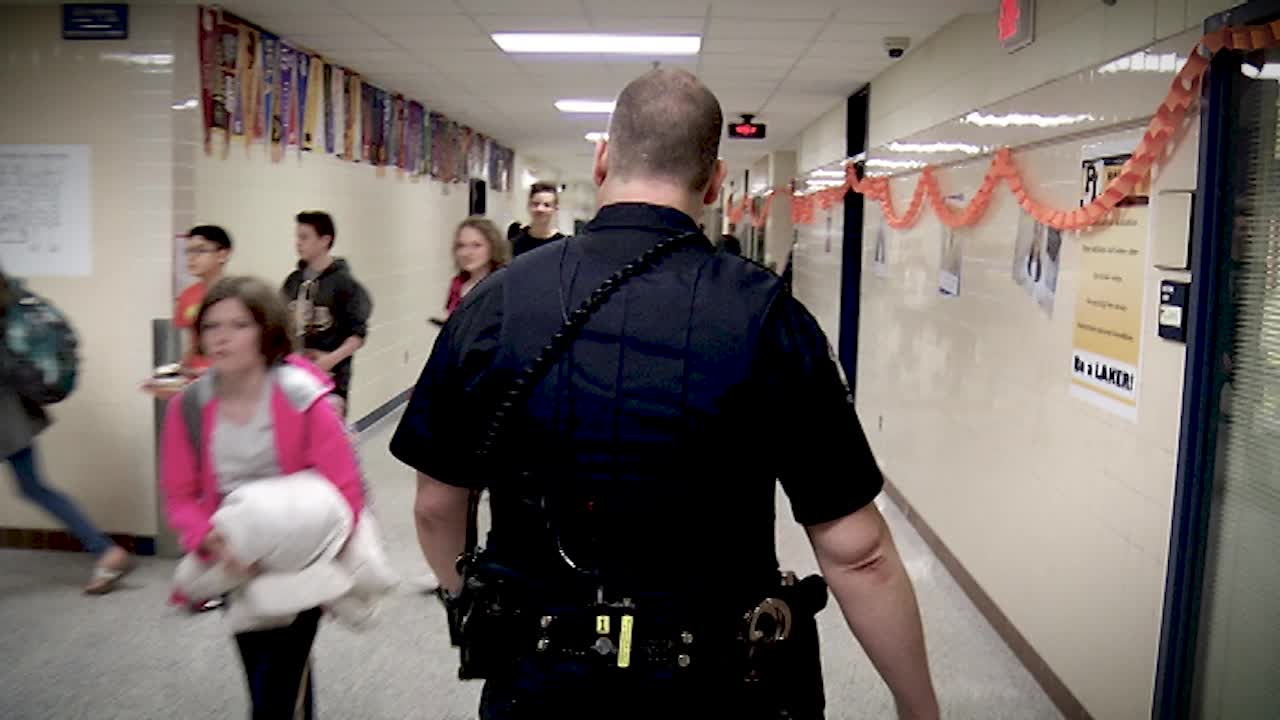POST Board adopts model policy for school resource officers

After months of discussion and even a change in the law, police officers in Minnesota schools now have new rules for interacting with students.
The school resource officer program became a hot-button issue last year when police agencies started pulling out of schools due to a law banning certain restraints on students. On Thursday, a state board overseeing police training and licensing made clarifications and changes to how SROs do their job.
The Peace Officer Standards and Training (POST) Board adopted the new policy after making some tweaks based on feedback from police and insurance lobbying groups.
“We’ve come together in the time frame that was provided for us, we did a pretty good job,” Golden Valley Assistant Police Chief Rudy Perez said. “To come together and adopt something that will provide the safety for our students first.”
The policy applies to how SROS use force and make arrests in schools, and some of the new changes also address concerns over liability and protecting police from potential lawsuits.
The POST Board stopped short of implementing changes that others wanted.
Advocates for students with learning disabilities and former students of color say the new directive doesn’t go far enough. They claim the board failed to develop a policy that builds trust and reduces what’s known as “prone restraint” — the procedure of putting a student face-down on the ground was part of the initial law change from the Legislature and part of the initial pushback from police groups.
“When I read through this policy, I see a priority that prioritizes our wants of school districts and law enforcement over the needs of our students,” said Dr. Delia Samuel, co-founder and board member of the Multicultural Autism Action Network.
State law requires police agencies with school resource officers to adopt the new changes, but that doesn’t mean it’s set in stone.
Many members of the board said on Thursday they were willing to see how the new policy works and change it if they hear from their communities.